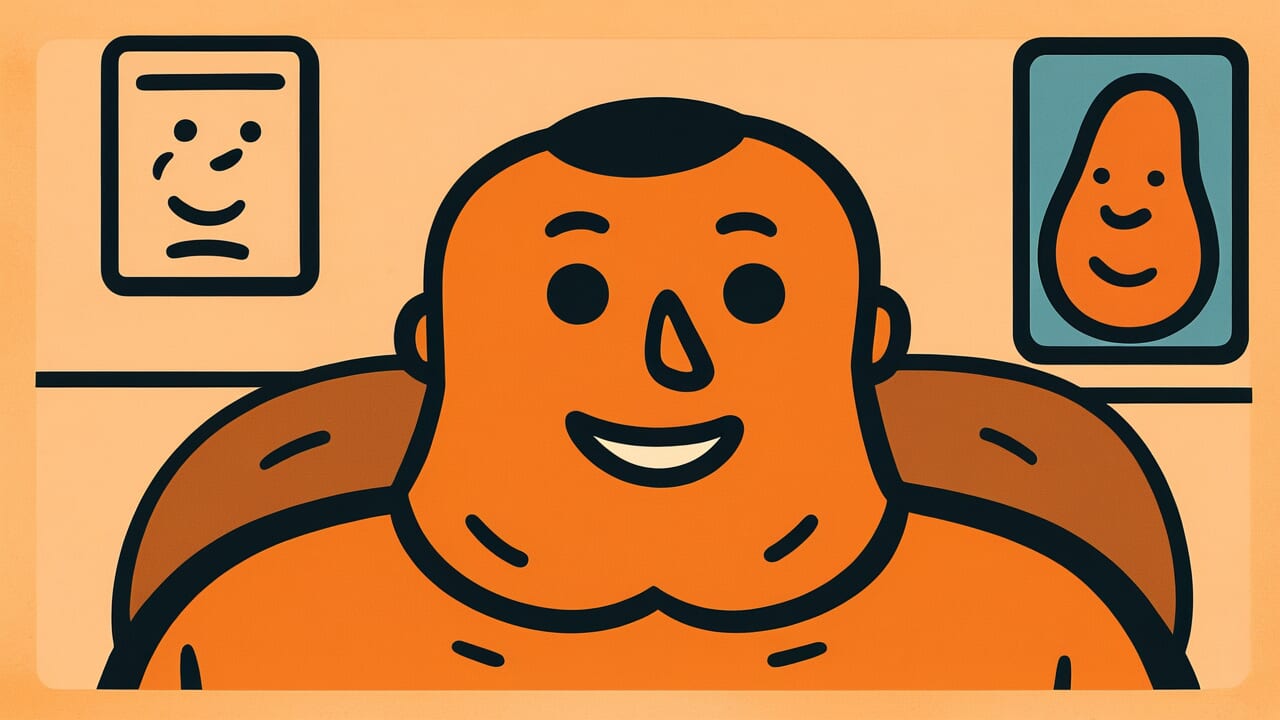How to Read “Even a taro head is still a head”
Imogashira demo atama wa atama
Meaning of “Even a taro head is still a head”
“Even a taro head is still a head” means that even foolish or less capable people have value as human beings and deserve some level of respect.
This proverb is used when people tend to look down on or dismiss others. For example, when coworkers mock an incompetent subordinate or ignore someone who learns slowly, saying “Even a taro head is still a head” reminds everyone that this person still has basic human dignity.
In modern times, as merit-based thinking and efficiency become more important, this proverb’s message matters even more.
No matter how low someone’s abilities are, they are still a human being and not completely worthless.
Rather, such people also have roles to play and reasons for existing. This proverb teaches us a fundamental view of humanity.
Origin and Etymology
No clear written records explain the origin of this proverb. However, we can make interesting observations from how the words are structured.
The word “imogashira” refers to the parent bulb of taro root. It also became slang for a foolish person.
The parent taro bulb is harder than the child bulbs and has less value as food. This is why people started using it to mean “useless person” or “foolish person.”
What makes this proverb clever is how it plays with the word “head.” “Imogashira” contains the character for “head,” which the proverb then treats as meaning “leader” or “chief.”
So even a “taro-like head” is still a “head.” This creates a wordplay structure.
Some scholars believe this proverb emerged from common culture during the Edo period. In a society with strict class divisions, it expressed the idea that every human has minimum dignity.
Rather than directly preaching equality, it used wordplay to gently convey human value. This may have been a wise way to share an important message.
Usage Examples
- That person works slowly, but even a taro head is still a head, so we should value them as a team member
- It’s not right to ignore students with poor grades. Even a taro head is still a head
Universal Wisdom
The proverb “Even a taro head is still a head” contains one answer to the eternal question of how we measure human value.
Human society has always had differences in ability and talent. People tend to praise the superior and look down on the inferior.
This drives social progress through competition. But it also risks excluding the weak and damaging human dignity.
This proverb teaches us that human value cannot be measured by a single standard. Yes, differences in ability and talent exist.
But these are not differences in human value itself. Even someone who seems foolish is still a human being with the right to live and be respected.
Our ancestors expressed this obvious yet easily forgotten truth with humor. By using the slightly comical word “taro head,” they avoided sounding preachy while conveying an essential message.
As human society becomes more complex, we tend to judge people by efficiency and results.
But in any era, recognizing the unique value each person holds is the foundation of a healthy society.
When AI Hears This
The human brain processes object recognition at three levels. For example, the specific level “Chihuahua,” the intermediate level “dog,” and the abstract level “animal.”
According to cognitive scientist Eleanor Rosch’s research, humans overwhelmingly prefer the intermediate level, called the “basic level category.” This is the cognitive sweet spot where the brain processes fastest with least energy.
This proverb’s linguistic structure uses exactly this cognitive mechanism. “Taro head” is the subordinate level, while “head” is the basic level.
What’s interesting is the use of “demo” (even though), a conjunction expressing contrast. This verbalizes how the speaker focuses on the specific category “taro head,” but the brain automatically pulls back to the basic level “head.”
In other words, the human cognitive system has a tendency to return to the basic level unconsciously, even when consciously trying to see the subordinate level.
Even more fascinating is the repetition “head is head.” This emphasizes the cognitive stability of basic level categories.
No matter what modifiers are attached, the brain ultimately understands things at the basic level and returns there. This proverb is a remarkable example of everyday wisdom that verbalizes the “basic level priority bias” in human cognitive systems.
Lessons for Today
This proverb teaches modern people the importance of having diverse perspectives when evaluating others.
In modern society, the tendency to judge people by visible achievements like education, income, or social media followers has grown stronger.
But if we determine human value only by such one-dimensional evaluations, we ourselves become suffocated.
The people around you who seem “incompetent” or “slow” surely have their own strengths and roles. No one is perfect.
Everyone has weaknesses and things they’re not good at. And you yourself might be a “taro head” in someone else’s eyes.
What matters is acknowledging each other’s imperfections and still respecting each other as human beings.
Differences in ability exist, but there is no difference in human value. Holding this perspective allows you to be kinder to both others and yourself.
Don’t demand perfection. Accept your imperfect self and imperfect others.
This kind of tolerance is the key to building truly rich human relationships.



Comments